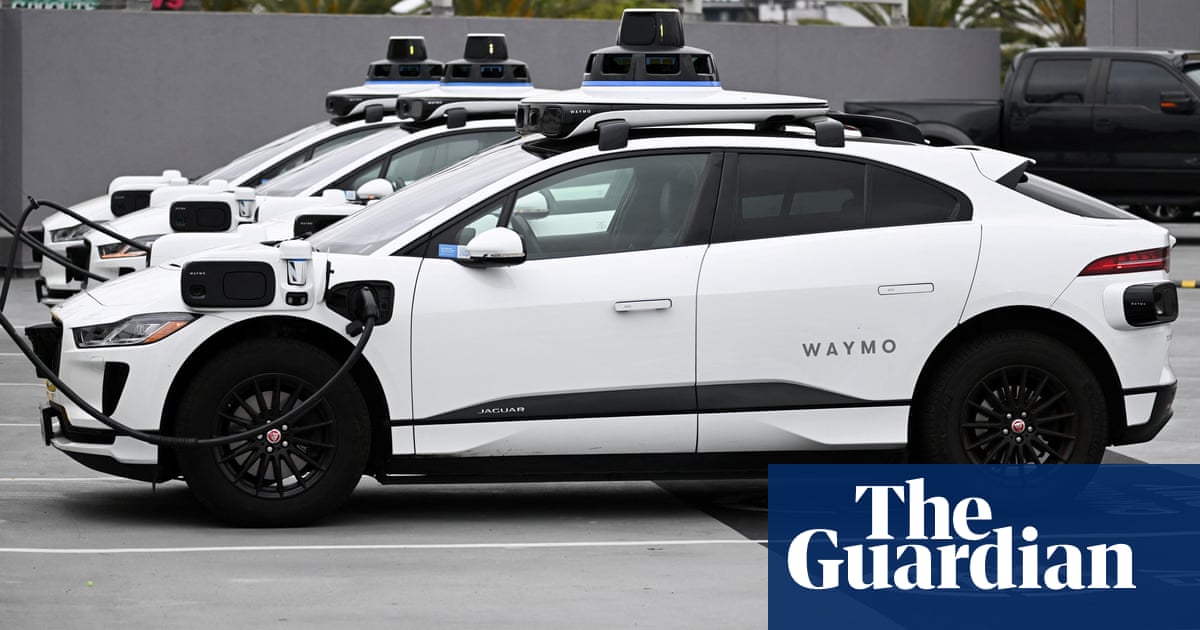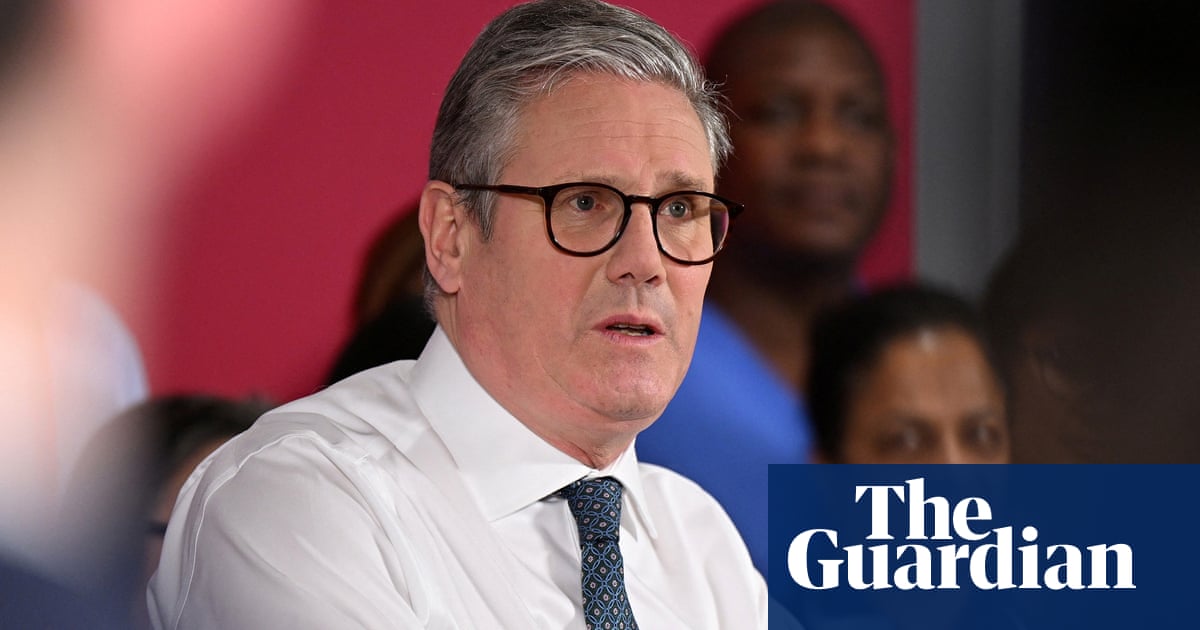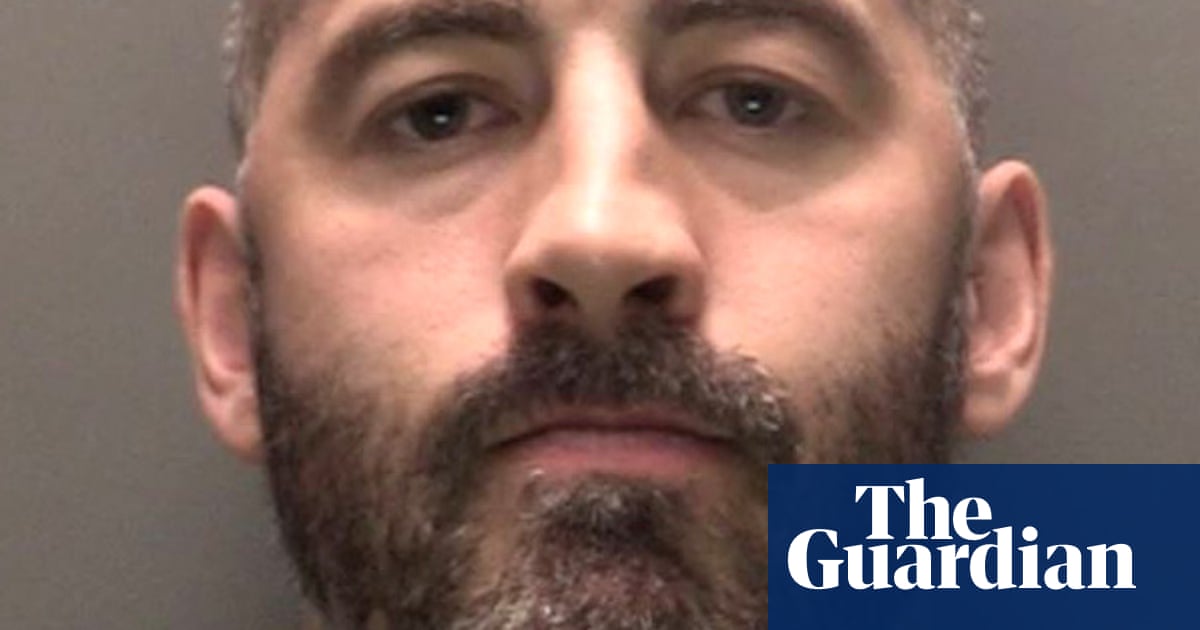On the outskirts of Puebla in central Mexico sits an area on the Atoyac River known as Nueva Alemania, or “New Germany”. Between two factories, under-construction houses pepper streets with names such as Frankfurt, Hamburg, Kiel, Hanover and Berlin.
New Germany is part of a broader region, an industrial district covering about 4,000 square kilometres that has been a hub for Mexican and global multinationals – notably German conglomerates – since the 1960s. Spanning 47 municipalities in the state of Tlaxcala and 22 in the state of Puebla, it is home to 1.1 million people.
Running through the area is the Atoyac River. But it is not a river that the community is proud of. “People used to wash clothes as the water was crystal clear, and they even bathed in the river,” remembers María Ocotlán, a Mexican snack shop owner on Munich Street. “Now, you can’t even wash your hands. The deterioration has been going on for 20 years.”
The Upper Atoyac basin is one of 30 regions identified as being in a state of socio-environmental and health emergency in Mexico, polluted by sewage and waste from homes, farmland, and, above all, factories.
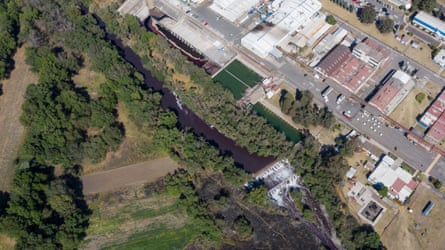
Now, the Mexican president, Claudia Sheinbaum, has promised to clean up the Atoyac – as well as the Lerma, Santiago and Tula Rivers – as one of the 100 priorities of her recently sworn-in government.
But to meet her commitment, Sheinbaum, a former climate scientist, will have to confront multinational companies accused by campaigners of harming the river.
Since 2021, a coalition of Mexican and international NGOs and experts has been denouncing New Germany – and especially the German multinationals – for the environmental devastation of the Atoyac, blaming “the pollution left by transnational corporations such as Volkswagen, Bayer, BASF and Thyssenkrupp, among others” for “leaving its mark on the territory and people’s bodies”.
In October 2023, the National Council of Science and Technology (Conahcyt), a public body of the Mexican government, acknowledged in a report that the region’s pollutants posed severe threats to public health.
The report showed that the mortality rate from chronic kidney diseases among people aged 15 to 49 in Tlaxcala regions within the Upper Atoyac basin was almost five times higher than the national average. High mortality rates from acute leukaemias in individuals under 19 were also more common in the southern part of the basin, particularly in Puebla and Tlaxcala, where the levels of metals and arsenic in the river are significantly higher.
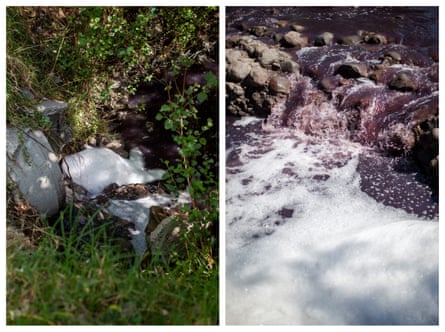
“Over the last decades, the inhabitants of the Upper Atoyac basin have witnessed the constant increase of industrial settlements such as the arrival of Volkswagen in 1965, the creation of the Independencia Petrochemical Complex in 1969 or the installation of the Audi company in 2016, among others,” says the document.
“The region witnessed an economic development of apparent prosperity, but the organisation of global mercantile processes that privileged the profitability of transnational companies promoted health, social and environmental ‘externalities’ with serious effects for local communities.”
The report noted: “The scientific evidence presented in this first report demonstrates that these high [mortality] rates are caused by exposure to toxins and polluting processes from industries located in the region. The automotive, electrical, chemical and textile industries have the highest pollutant emissions.”

Alejandra Méndez, who directs the Fray Julián Garcés Centre for Human Rights and Local Development, has spent the last 20 years denouncing the pollution caused by Mexican and foreign multinationals settled in the industrial district. “The smell is terrible: toxic, sweet but spicy at night. It makes people dizzy or vomit,” she says, referring to the region where VW and Pemex, the Mexican state-controlled oil company, have been since the 1960s.
In 2011, local communities filed a complaint with the Mexican National Human Rights Commission. That led to a recommendation in 2017 urging the state governments of Puebla and Tlaxcala to implement measures to guarantee their right to a healthy environment.
From 2015 to 2017, the federal environmental prosecutor’s office (Profepa) conducted 945 inspection visits, leading to the closure of 27 industries for mishandling hazardous waste. It also initiated legal actions against 38 municipalities over their responsibility for the pollution. From 2022 to mid-2023, the prosecutors enforced another 13 closures, mainly in San Martín Texmelucan and Puebla.
Last year, the Mexican secretariat of environment and natural resources, along with the National Water Commission (Conagua), released a report acknowledging that out of 18 locations along the Atoyac River in Puebla and Tlaxcala, only one was found to be unpolluted.

According to the non-municipal wastewater treatment plants inventory, 219 companies discharged wastewater into the Atoyac River basin every day in 2022. Although multinationals from several countries pour their waters into the Atoyac, many of the biggest are German.
Last year, Puebla was the leading Mexican exporter to Germany, moving goods worth $3.66bn (£2.82bn). A report from Mexico’s Secretariat of Economy on foreign direct investment (FDI) showed that from January to June, it received $942m worth of German investment, second only to Mexico City, with $1.45bn in investments.
Conahcyt says that the heavy metals, metalloids, organic-synthetic compounds, and pesticides dumped in the Atoyac by industry are the reason behind the high rates of diseases related to pollution among the local population – rates that surpass Mexico’s national average.
“According to data from the pollutant release and transfer register , the area with the highest emissions is the Zahuapan area, a sub-basin of the Atoyac River located in Tlaxcala,” the report says. “In this sub-region, there are important chemical and other industries of various kinds that are also highly polluting.”

Another report, this time from the Public Registry of Water Rights, says in Puebla alone, BASF extracts approximately 1,750 cubic meters of water a day and discharges almost 194,000 cubic meters of wastewater annually directly into the Atoyac River.
BASF says it operates its Puebla site “in full compliance with local and federal laws and upholds a strong commitment to environmental stewardship across all its locations”. The company highlights that since its establishment, the Puebla facility has operated a wastewater treatment plant 24 hours a day as part of its commitment to safe production for people and the environment, and has held the Clean Industry Certificate, issued by Profepa, since 2015.
after newsletter promotion
“We operate in alignment with local and federal laws that apply to us and with the Corporate Target Introduction of Sustainable Water Management,” says BASF.
Volkswagen’s car assembly plants, also sitting next to the Atoyac, have extracted 1.5m cubic meters of water annually since May 1996, the exact volume of annual residual discharges the company reports to have made since 2004. In response to inquiries about the wastewater in the Atoyac, the company says it complies with “all the measurements required by applicable Mexican regulations”.

Bayer says its production plant in Tlaxcala is dedicated to biofungicides, “with no chemical products produced on-site”. The company says it has undergone inspections by the Mexican authorities, including Conagua and Profepa, and has not received any sanctions. The Tlaxcala’s facility, says the organisation, does not discharge wastewater directly into the Atoyac River, but “pre-treated wastewater” in accordance with the state water and sanitation commission of Tlaxcala, which is responsible for its final discharge.
“Bayer has maintained an open-door and transparency policy, informing the community, authorities, and all interested parties about its high standards of environmental protection, as well as its wastewater treatment process,” the company says, adding: “The site complies with all applicable regulations and with the company’s global international standards.”
Thyssenkrupp says it is “not aware of any complaints regarding the health of the local population, nor have any inspections been carried out by the Federal Environmental Prosecutor’s Office”. The company adds that wastewater “is treated in water treatment plants and monitored by the relevant authorities to ensure compliance with officially established limits” and reiterates that it follows “company-wide standards”, such as the german supply chain due diligence act and the principles of compliance with human rights and environmental due diligence.
Campaigners say that in the past 60 years, Mexico has made political decisions based on achieving economic growth, not environmental consequences. Rodolfo Omar Arellano-Aguilar, a researcher on ecology and natural resources at the National Autonomous University of Mexico, says that Mexican legislation allows high pollution levels and does not specify criteria to verify who is polluting.
“Industries must keep their pollutants below certain levels, but those limits are absurdly high,” he says. “Despite that, discharges are carried out into common drains, making it impossible to know who is responsible.”
In addition to facing increasing pushback from federal authorities and affected communities in Mexico, the German and other European corporations blamed for damaging the Atoyac basin will soon be under greater scrutiny from the EU.

In April 2024, the European parliament approved the corporate sustainability due diligence directive, a new regulation strengthening European companies’ responsibility for environmental practices beyond EU borders.
The directive came despite two years of lobbying by industrial groups and efforts by German officials to water down the directive’s scope, “seeking to diminish the law’s potential impact”, according to the Corporate Europe Observatory. “German business lobby groups have done their utmost to use the German law as a lever to keep European ambitions in check,” says Friends of the Earth.

At the final vote in Strasbourg’s last plenary session before the EU election, MEPs approved a text that entered into force in July and will affect companies with more than 1,000 employees and an annual turnover of more than €450m (£376m).
The German conglomerates in the Atoyac will fall within the scope of the EU regulation from 2027 onwards, when they will be obliged to integrate due diligence into their business policies to comply with the directive.
BASF publicly welcomed the new regulations, while Bayer joined a group of companies that publicly condemned German chancellor Olaf Scholz’s manoeuvres to water down the directive.
Finnish Green MEP Heidi Hautala, the directive’s “shadow” rapporteur, says these companies no longer opposed the new directive “partly because of the concessions agreed between member states”.
“In some ways,” she says, “we are in the direction they wanted to go.”
-
Journalismfund Europe supported this story

.png) 2 months ago
19
2 months ago
19






